
by Ewa Samples | Jun 20, 2014 | 2014, Awareness, Environment, Family, Health, Human Rights, Humanity, Inspirational, Motherhood, Parenting, Polish Mom Photographer, Safety, USA, World Motherhood

Four years ago I bought my last body lotion and body wash. Two years ago, for several months I went “no-poo”. Around that time I also threw all my deodorants in a trash can.
The only thing I have gotten back to is the shampoo. I do, though, try to make it myself every now and then. The rest of the cosmetics are not very welcome on my bathroom shelf, unless I make them myself.
Because of that, I normally try to stay on top of situations in which I may run out of something (and also because I simply refuse to use the toiletries that are on my husband’s shelf in the bathroom). Funny thing is that he has way more “beauty products” than I do, and he does not have a lot of them, compared to most people.
… but one day it happened, I ran out of my shampoo…
Luckily it was a shopping day. Happy that I didn’t actually have to make an extra trip to the grocery store just to get a shampoo, with my greasy hair tied in a ponytail, I left the house. Because it was pretty late, and we were pretty exhausted from a busy day, we had decided we were going to stop by only one store, not two, like we normally do. (more…)
Ewa was born, and raised in Poland. She graduated University with a master's degree in Mass-Media Education. This daring mom hitchhiked from Berlin, Germany through Switzerland and France to Barcelona, Spain and back again!
She left Poland to become an Au Pair in California and looked after twins of gay parents for almost 2 years. There, she met her future husband through Couch Surfing, an international non-profit network that connects travelers with locals.
Today she enjoys her life one picture at a time. She runs a photography business in sunny California and document her daughters life one picture at a time.
You can find this artistic mom on her blog, Ewa Samples Photography, on Twitter @EwaSamples or on Facebook!
More Posts - Website
Follow Me:





by ThinkSayBe | Jun 12, 2014 | 2014, Africa, Awareness, Being Thankful, Communication, Discipline, Education, Expat Life, Eye on Culture, Family, Girls, Humor, Older Children, Parenting, Technology, Teenagers, ThinkSayBe, USA, World Motherhood
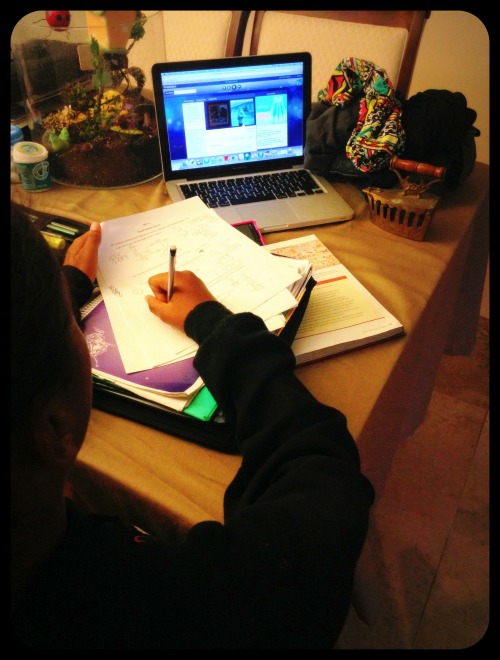
“But mom, why can’t I do my homework in front of the TV??? I’m not watching it, I’m just listening to it!!”, says my 12-year-old girl, emphasizing the word ‘watching’ with a half roll of the eyes.
My daughter is a really cool human & a great child. She is a tween so craziness and challenges come with the territory. Still, she has sweet moments, and she “OKs” everything, whether she remembers later or not.
But, my life was very different growing up in Italy and then Tanzania…
By age 9 my older brother & I alternated daily chores. We had to do dishes & sweep daily. There was no dillydallying, no talk-back, no having to dry our hands to like a song on Pandora…. none of that. We did homework on the kitchen table, our beds, in the yard, and wherever else. After I was done with homework I’d have to use the house phone, speak to a parent with good phone manners, & find out if my friends could come play. There was no texting them.
Everyone knew our plans; at least initially (smile). Outside we used our imagination to play with nothing. We picnicked under a tree in this huge sunflower field. We rode our bikes in circles in the bus’ parking lot and made sure we were home when the lights came on.
When I was 11 we moved back to Tanzania. Life here was drastically different, yet, in some respects there was more access to things than we had in the small Italian town we lived in. However, constant electricity and running water were gone. We had a western toilet in our home, but often had to use toilets requiring squatting, be they a hole over a sceptic tank, or an Eastern latrine. Not having water & electricity all the time required planning.
Though there was hired help, we also had to fetch water. If you don’t like fetching water you learn to use it sparingly. You take a shower from a bucket that’s a quarter full and come out clean! You recycle water so that first you wash your hair by dipping it into the bucket, then use the same water as the first cycle of your laundry, which you wash by hand. Having city-wide rationed electricity, meant ensuring you have kerosene, wick for lamps, and match sticks. You actually needed plenty of match sticks in Tanzania, because there is this one brand that makes them and you’re lucky if one out of five matches actually lights up & stays lit. HAHA!
We must see these things as humorous. Lack of electricity and paying for it in advance, meant using it responsibly. The radio would be on, and so would the TV for some parts of the day. We knew to close the fridge fast and to unplug the iron as soon as the job was done. Ironing was not always done with an electrical iron, either. Some times we would use a charcoal iron. It sounds like it’s from an entire different era, right? It’s still being used. A charcoal cast iron had to be used carefully. You’d also plan how to get hot coals so instead of wasting charcoal, kerosene fuel, and good match sticks, you’d use the charcoal for cooking. That required planning as well. A lot of planning and patience for a youngster, and children had to consider all these things from toddlerhood!
I am so infinitely grateful we lived this kind of life in my teenage years. Though I am sure I threw crazy hormonal arrows (figuratively speaking) at my mom, I think that having to deal with these realities made me get myself together quickly, thus sparing her six years of teenage craze. As far as school goes…wow! We had mandatory knee-high socks & buffed black shoes, mandatory hair pleats that I never had, monitors & prefects who thrived on their power to make us kneel for ‘misbehavior’, and hit-happy, switch-carrying teachers in the hallways who would whack you for no good reason.
In elementary school we had to chant….slowly & loudly…..”GOOD MORNING TEACHER!” Then we’d answer & ask, “FINE THANK YOU TEACHER, AND HOW ARE YOU, TEACHER?”, then we’d be permitted to sit down. In boarding school we had exactly 30 minutes to eat. The first year we ate food we individually cooked the night before, hoping it was still good without refrigeration. As a senior, food was made for us, so we’d hope it was ready & that we didn’t have to scoop bugs out of our beans. We’d always wash our dishes before returning to class. All of this, in 30 minutes.
At this school there was no corporal punishment. However, if we were late or didn’t follow other rules, we’d have some agricultural work for at least one period.
We studied in the hall after we cleaned our dinner mess. After two hours of supervised solid studying, we’d return to our hostel rooms (mine had four bunk beds with three beds each), and lights were out by 10pm. Everyone took showers in the morning, which I found to be unnecessary as the water was very cold, so I would leave some water in the courtyard for the sun to heat , and take a shower after school.
When I came to the United States I didn’t think I had a different work ethic than anyone else. I thought we all work hard & have different struggles. As the years passed I began to see certain differences & felt extremely fortunate for my history as it was.
As a girl I was lucky that my mother (who is partially Afghani & Punjabi) didn’t believe that I was worthless, blessed that she believed in education and sent me to school. I was also fortunate that I wasn’t betrothed at a young age, or at all. As I was in college I understood that I was privileged and had to make other women proud.
I would have to get the best grades, be a well-rounded student & not take electricity and running water for granted. So when my daughter asks why she can’t do her homework in front of TV, I don’t know what to say! OK, I do answer her, trying to use logic she’ll understand. She visited Tanzania for a few months in 2010, but she cannot relate to my history.
When my daughter was round age four she always asked if she could help with chores, but as I tried to rush I’d ask her to draw or play instead. I thought the environment around us would do for her what it did for me at her age. I knew I wasn’t in Italy, or in Tanzania, but I still thought I wouldn’t be the only one pushing for a balanced human. I also didn’t anticipate technology advancing so incredibly fast & how much gadgetry she would have at her disposal. In retrospect I should have encouraged her willingness to help.
She is now 12, doesn’t like to do any chores other than the occasional Swiffer mopping. She wants to do homework while listening to TV, somehow ignoring the visuals, and she wants to spend her other homework time listening to pop songs. She does practice Brazilian Jiu Jitsu and has a unique passion for it. But when not doing her school work, she looks at photos with funny quotes, watches short videos, and messages her friends on her phone. Our lives are so different. How do I teach her what I’ve been taught?
Is it drive? Is it thirst? Can you relate? How do you teach your children how to work hard? Please share your findings with me!
This is an original post to World Moms Blog by Sophia in Florida, USA. You can find her blogging at Think Say Be and on twitter @ThinkSayBeSNJ.
Photo credit to Trocaire. This photo has a creative commons attribution license.
I am a mom amongst some other titles life has fortunately given me. I love photography & the reward of someone being really happy about a photo I took of her/him. I work, I study, I try to pay attention to life. I like writing. I don't understand many things...especially why humans treat each other & other living & inanimate things so vilely sometimes. I like to be an idealist, but when most fails, I do my best to not be a pessimist: Life itself is entirely too beautiful, amazing & inspiring to forget that it is!
More Posts
Follow Me:


by Sarah Hughes | May 30, 2014 | 2014, Family, Kids, Maternal Health, Motherhood, Parenting, Sarah Hughes, USA, Working Mother, World Interviews, World Motherhood, Younger Children
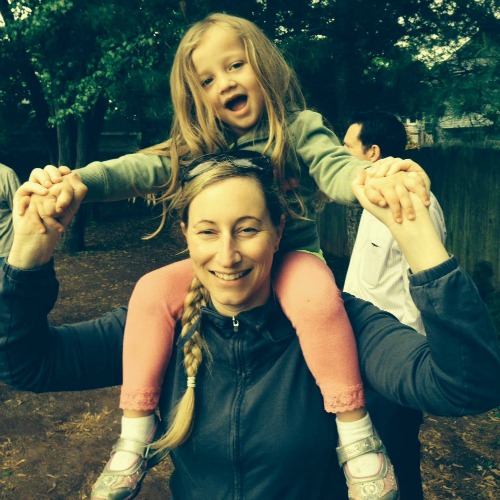
Sarah Hughes has been helping out behind the scenes at World Moms Blog. Read her interview to learn more about our newest contributor in North America! (more…)
Sarah grew up in New York and now calls New Jersey home. A mother of two, Derek (5) and Hayley (2), Sarah spends her days working at a University and nights playing with her children. In her “free” time Sarah is a Shot@Life Champion and a volunteer walk coordinator for the Preeclampsia Foundation. Sarah enjoys reading, knitting, sewing, shopping and coffee. Visit Sarah at her own blog Finnegan and The Hughes, where she writes about parenting, kid friendly adventures and Social Good issues. Sarah is also an editor, here, at World Moms Blog!
More Posts - Website
Follow Me:




by Natalia Rankine-Galloway (Morocco) | May 23, 2014 | 2014, Awareness, Childhood, Communication, Girls, Kids, Life Lesson, Milestones, Motherhood, Parenting, USA, Womanhood, World Motherhood, Younger Children
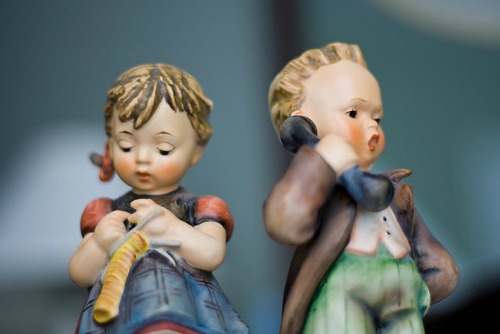
Last month’s Atlantic Magazine featured a cover page story on the “Confidence Gap” between men and women. For a variety of reasons both biological and environmental, women drastically underestimate their own competence. This, the article tells us, is a big obstacle to women accomplishing the success they are due.
While it was interesting to me that womankind as a whole seems to value themselves more meanly than mankind, it was all the more interesting to know that I wasn’t alone in feeling anywhere from out of my depth to outright fraudulent in many situations. Apparently many other ladies in the room were likely feeling just the same.
But more than anything else, the article left me examining a gap within myself. The gap between where I feel my confidence ought to be and where is actually is. And where it is, quite frankly, is way….way behind. Let’s say…1994 behind. (more…)

Natalia was born a stone's throw from the Queen's racetrack in Ascot, UK and has been trying to get a ticket to the races and a fabulous hat to go with it ever since. She was born to a Peruvian mother and an Irish father who kept her on her toes, moving her to Spain, Ireland and back to the UK before settling her in New York for the length of middle and high school. She is still uncertain of what she did to deserve that.
She fled to Boston for college and then Washington, D.C. to marry her wonderful husband, who she met in her freshman year at college. As a military man, he was able to keep her in the migratory lifestyle to which she had become accustomed. Within 5 months of marriage, they were off to Japan where they stayed for a wonderful 2 and one half years before coming home to roost. Baby Xavier was born in New York in 2011 and has not slept since.
A joy and an inspiration, it was Xavier who moved Natalia to entrepreneurship and the launch of CultureBaby. She has loved forging her own path and is excited for the next step for her family and CultureBaby.
Natalia believes in the potential for peace that all children carry within them and the importance of raising them as global citizens. She loves language, history, art and culture as well as Vietnamese Pho, Argentinian Malbec, English winters, Spanish summers and Japanese department stores...and she still hopes one day to catch the number 9 race with Queen Liz.
You can find her personal blog, The Culture Mum Chronicles.
More Posts

by Mannahattamamma (UAE) | May 21, 2014 | 2014, Awareness, Cultural Differences, Education, Expat Life, Feminism, Girls, Government, Human Rights, Nigeria, Politics, UAE, USA, Women's Rights
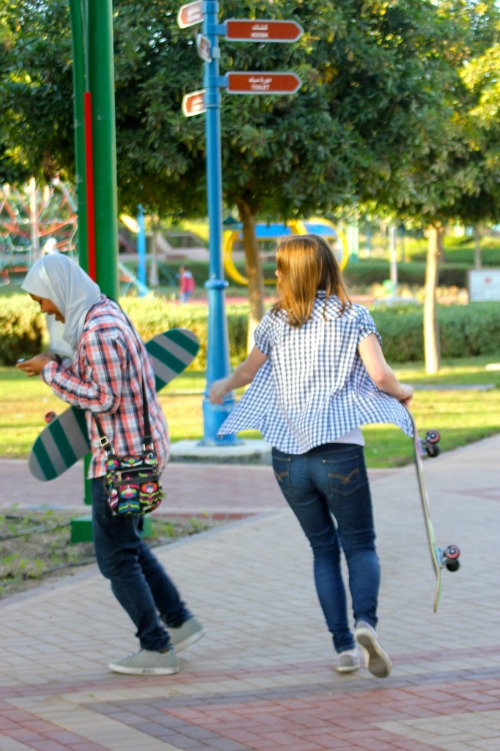
In March, I wrote a post in honor of Gloria Steinem’s birthday, in which I mentioned that when Steinem spoke at my college graduation way back in the 1980s, my friends and I had wished for a speaker who was more “relevant.” In our innocence, we believed that Steinem had won her fight; we were graduating from a women’s college and thought that fight for gender equality had been more or less won.
More than two decades later, I wish I could say that Steinem was irrelevant and that gender inequality is something we only read about in the history books.
When I wrote that post about Steinem, I was thinking about the Common Core curriculum, which relegates women’s contributions to history to the sidelines. Now, of course, we are all confronted with the horror that’s unfolding in Nigeria, and while the plight of those schoolgirls devastates me, it has become, in my mind, another instance in a long list of the ways in which groups (comprised mostly of men) attempt to score political points by seizing control of women’s lives. As an example, think about the Tea Party conservatives in the US, who prove their conservative bona fides in the United States by voting against support for Planned Parenthood, or Head Start, or universal kindergarten, or…
What is so scary about educating a girl? In the middle ages, accusations of witchcraft were often leveled against women who had amassed too much wealth or land, or who in some way differed from those around them. We teach our children that things like the Salem witch trials happened because “people didn’t know better” or because of “mass hysteria” but sometimes I wonder how far we have progressed since those days. What happens to women who challenge the status quo–or who have the potential to challenge the status quo? Don’t they still run the risk of being punished, whether literally or figuratively?
It’s funny to me now, but when I first moved to Abu Dhabi the two most obvious indications that we’d left Manhattan behind—besides the searing heat—were the adhan and the abaya-clad women: religion and covered bodies. I found the abayas more unsettling than the call to prayer, even as I sometimes envied the women their public invisibility. The longer we live here, however, my perceptions have changed so that I no longer see hijab as an automatic symbol of oppression or subjugation or second-class citizenry.
I would imagine, however, that as women here, we’ve all had moments where we’ve felt marginalized, silenced, lesser: the day I trotted down the sidewalk to get in a waiting cab and the cab driver chastised me by saying “women should not run, madam, I will wait, and you should walk.” Or when a guard at the border crossing into Oman looked over at the passenger seat where I was sitting (in long trousers) with one foot propped on the dashboard and told me “to put my foot down, sit like a lady, more properly, sit properly.” When that happened my first impulse was to laugh: surely he couldn’t be serious? But, of course, he was serious. I put both feet on the floor and looked at the map so that I didn’t toss out a few well-chosen swear words. (A general rule regardless of where you are: don’t swear at anyone, male or female, who is wearing a uniform at a border crossing.)
So yes, in that instance, I was silenced as I suppose I was by the cab driver too, who took it upon himself to offer some unsolicited advice. And yes, there is now a slight internal pause before I leave the house as I run through a kind of inner checklist about what I’m wearing: if short sleeves, a long skirt or pants, or vice versa (long sleeves, shorter skirt or shorts); do I have a shawl (equally for frigid air conditioning and bare shoulders); if I’m going to the beach, I make sure that my beach cover-up is more than a ratty t-shirt. There are days where I know I’ve failed the checklist and am too busy or late to care, but overall, I dress more modestly now than I used to and probably that’s not a bad idea: no one needs to see a fifty-year-old woman slopping down the street in cut-off shorts and a tank top.
Am I being repressed, or respectful? Does my feminism mean that I yell at the cabbie, keep my foot defiantly on the dashboard, saunter down the street in a halter top and tight jeans? Or, alternatively, does feminist politics remind us that silencing and the policing of women’s bodies happens—sadly—in almost every culture in the world, including the US? Without making light of the specifics of being female in this region, I’ve come to think of the issues facing women in this part of the world as being differences in degree, not kind, from the problems facing women in other parts of the world.
What do we, as women, do to help other women and girls find their voices–find our own? How do we create strength to silence those who would silence us?
This is an original post to World Moms Blog by Deborah Quinn in the United Arab Emirates of “Mannahattamamma.”
After twenty-plus years in Manhattan, Deborah Quinn and her family moved to Abu Dhabi (in the United Arab Emirates), where she spends a great deal of time driving her sons back and forth to soccer practice. She writes about travel, politics, feminism, education, and the absurdities of living in a place where temperatures regularly go above 110F.
Deborah can also be found on her blog, Mannahattamamma.
More Posts
Follow Me:


by Roxanne (USA) | May 16, 2014 | 2014, Communication, Family, Inspirational, Life Lesson, Motherhood, Parenting, Rox is Brilliant, Single Mother, Unintentionally Brilliant, USA, Womanhood, Working Mother, World Motherhood
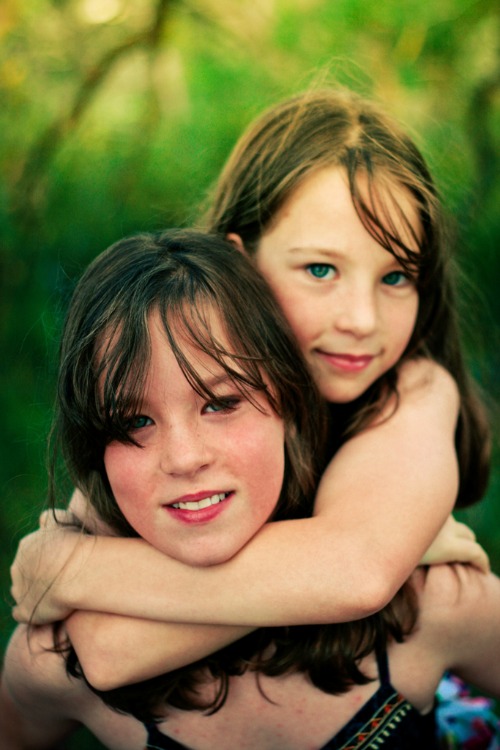 My extended family on my dad’s side is huge. My dad had a bunch of sisters and a brother, and they’ve all gotten married and had babies and all of their babies are getting married and having babies. My oldest cousin is in her 40s; the youngest is in her early 20s. The oldest of the cousin’s children is 17 and the youngest is…just a couple weeks old.
My extended family on my dad’s side is huge. My dad had a bunch of sisters and a brother, and they’ve all gotten married and had babies and all of their babies are getting married and having babies. My oldest cousin is in her 40s; the youngest is in her early 20s. The oldest of the cousin’s children is 17 and the youngest is…just a couple weeks old.
Growing up, one set of cousins lived particularly close to where we lived. J is almost exactly 10 years older than me, and his sister V is 8 years older. They both used to babysit my siblings and I, but I mostly just remember V. She would take us on the bus when we left the house. She was a cheerleader, and when I got a little older she was my cheer coach.
In all honesty, she was basically my big sister. I looked up to her in a way I wished my little sister would look up to me. I still do.
Recently I had a mini breakdown at a family event and I ended up closing myself in a bedroom for a while to have a good cry. I just needed to get it out to be done with it and move on. It was the only way I could deal with all of the emotions I had been feeling.
V came to me to talk. It was a little bit of a relief when she admitted to me that she doesn’t have everything together. She made me realize that it’s all right for me to not have it all together at 30. People have been telling me this, but V saying it–for some reason–really made it click. I have looked up to her for so much of my life, and what I could see always looked like she really knew what she was doing. For her to admit even the smallest imperfection meant a lot to me.
Not because I feel better that she’s imperfect, but because she made it okay for me to be imperfect. She made it okay for me, and I’m here to tell you that it’s okay for you. It’s okay if you don’t have it all together. Nobody does. We’re all just doing the best we can with what we’ve got. And what more could we ask for?
Do you ever feel like you don’t quite have it “all together”? How have you dealt with the emotions you have felt?
This is an original post to World Moms Blog by Roxanne of Nevada, USA. You can find Roxanne at her editorial website, RoxannePiskel.com, and her personal blog, Unintentionally Brilliant.
Photo credit to Lina Hayes. This photo has a creative commons attribute license.
Roxanne is a single mother to a 9-year-old superhero (who was born 7 weeks premature), living in the biggest little city and blogging all about her journey at Unintentionally Brilliant. She works as a Program Coordinator for the NevadaTeach program at the University of Nevada, Reno. Roxanne has a B.A. in English from Sierra Nevada College. She has about 5 novels in progress and dreams about completing one before her son goes to high school.
More Posts - Website
Follow Me:


















 My extended
My extended 


